#t.s. Knight
Text
'Is anyone else surprised by the popularity of Oppenheimer? The film has triggered a mammoth cultural explosion, igniting topics that range from the dangers of politicizing science, to the hermeneutics of the mushroom cloud, to the intricacies of IMAX, to AI military technology and “our Oppenheimer moment,” to the “subversive” nature of going to a movie theater in the age of streaming. Not to mention the whole “Barbenheimer” phenomenon.
Based on Kai Bird and Martin Sherwin’s 2005 biography, American Prometheus, Oppenheimer charts the brilliant career of its eponymous hero; but the career of director Christopher Nolan has a shimmer all its own. Nolan’s CV is every young filmmaker’s envy: artsy short film (Doodlebug), followed by bargain-basement debut that garners critical attention (Following); then a breakthrough art-house film that makes money (Memento); and finally off to Batman-land, rocketing Nolan from no-budget to mega-budget in just eight years. The rare director seemingly able to have it all, Nolan specializes in box-office blockbusters “pitched at the divide between art and industry, poetry and entertainment,” as Manohla Dargis wrote about The Dark Knight.
Nolan’s core obsessions were laid out in Memento (2000), a flashy neo-noir thriller that gave the term “retro” a whole new meaning. That film consists of short sequences that move forward but are arranged in reverse, tracking backwards in time from a revenge killing in the opening scene to the original crime that incited it. Memento’s devices of narrative uncertainty require some cognitive calisthenics on the part of viewers. In the two decades since, Nolan has returned to this sweet spot with films such as Inception (2010) and Tenet (2020), movies that reflected his abiding urge to drill down into, and manipulate, the fundamental structures of cinematic reality. No wonder a story about theoretical physics would attract him.
A three-hour biopic, Oppenheimer sets up as a bildungsroman, charting physicist J. Robert Oppenheimer’s education and character formation. We follow his youthful tour of European universities in the 1920s, where he meets science luminaries from Heisenberg to Niels Bohr; his eventual landing at Berkeley, where his ideas catch fire (an artful time-lapse sequence shows rising attendance as his classes become popular); and, finally, the unfolding of the Manhattan Project under his direction at Los Alamos, New Mexico. Well, not finally, in fact. A substantial chunk of the movie consists of layered-in testimony from two postwar political proceedings: a 1954 Atomic Energy Commission hearing to determine whether Oppenheimer would maintain his security clearance; and the 1959 Senate confirmation hearing of Lewis Strauss as Eisenhower’s Secretary of Commerce. Strauss was the man who hired Oppenheimer to head the Institute for Advanced Studies at Princeton, then subsequently subverted his career, apparently for reasons of personal jealousy and resentment.
It is a lot of ground for a movie to cover, and let me lay my cards on the table: amid near-unanimous critical acclaim for Oppenheimer, I second the dissenting vote of the ever-acerbic New Yorker critic, Richard Brody, who likened it to “a movie-length Wikipedia article.” In contrast with the elusive and profound aura that enwraps Nolan’s storytelling in his best movies, here the director takes a kind of History Channel approach, in which private lives are stapled to a public timeline. Thus, for example, the publication of an important physics paper by Oppenheimer in a science journal on September 1, 1939, is upstaged by a screaming newspaper headline, “War in Europe!” There are history footnotes, as when we briefly meet a Los Alamos physicist named Klaus Fuchs—history buffs will register the future notorious spy. Ethical quandaries arising from the prospect of bombing the Japanese are limned for us in meetings where stakeholders hash it all out, seminar style. “Is there no way to demonstrate it first?” asks one of the physicists. “Oh, we intend to demonstrate it in the most convincing way possible—twice!” barks General Leslie Groves, Los Alamos’s Army overseer. It all feels conspicuously…educational.
As for the character of Oppenheimer, he is supposed to present the tragic paradox of a civilized humanist who lends his talents to the harnessing of a violence that could destroy civilization. By way of characterization, we are given visual gestures that juxtapose his various passions and preoccupations—a look around his office disclosing T. S. Eliot’s “The Wasteland” along with prints of modernist art, followed by hallucinatory visions of cosmic particle-scapes set to thunderous music, followed by Oppenheimer quoting a John Donne sonnet to a baffled General Groves (an enjoyably gruff Matt Damon).
But what kind of man was Oppenheimer, really? A few stray moments in the film, clearly culled from the Bird-Sherwin biography, hint at a driven, impulsive, and eccentric bohemian with a dark side. In an early scene from his student days, he impulsively injects a disliked teacher’s apple with cyanide, and has to rush back later to avert calamity. Cyanide? Such behavior is so out of whack with the film’s portrayal of its protagonist that I found myself saying, “Really?”; and although General Groves calls Oppenheimer “theatrical, egotistical, and unstable,” we don’t see enough of these qualities in action. While Oppenheimer’s ethical dilemmas are laid out with teacherly clarity, his psychological and emotional complexities never really come into focus; oddly for a biopic, Nolan has made his subject less interesting than he was in life.
The one-note intensity of Cillian Murphy’s performance doesn’t help. Cinematographer Hoyte van Hoytema fills the screen with closeups of Murphy’s strangely unearthly face, set in a far-off, suffering gaze. This haunted and passive bearing is at odds with the reality of Oppenheimer’s power, and it is disconcerting to see Murphy’s wraithlike figure striding down Los Alamos’s dusty main street in his fedora like a sheriff in a gunslinging town. “He was founder, mayor and sheriff, all rolled into one,” one visitor recalls. “You are an American Prometheus,” Niels Bohr tells him. But we get almost no sense of any megalomaniacal dimension to his character.
Yet power and its mesmerizing allure lie at the heart of the story. The film scrutinizes the scientists’ justifications for developing a weapon of supreme destructiveness—first and foremost, the fear that the Nazis would get there first. As it turned out, they weren’t particularly close; Hitler mistrusted the science and pursued conventional weapons such as the V-2 rocket, and then the war in Europe was over. But the Manhattan Project had developed an unstoppable momentum, and in Oppenheimer apparently most of all. In Jon Else’s illuminating 1980 documentary, The Day After Trinity, British physicist Freeman Dyson recalls that “the dream somehow got hold of him—to produce a nuclear weapon.” And Hans Bethe, another key player at Los Alamos, adds that Oppenheimer “completely changed to fit the new role.” This change—what it drew on in Oppenheimer, and how it ramified—goes largely missing from Oppenheimer, and its absence vitiates the drama, reducing tragedy to mere chronicle.
The film is three hours long, yet the portrait of its protagonist seems sketchy, and one wonders how Nolan might have allocated time differently. Take, for instance, the decision to showcase the hearings from the 1950s. Presumably, the intention was to dramatize the emerging political dynamic of the Cold War, with its rituals of character assassination. But the resulting “action” is bureaucratic and dense. Nolan’s script takes us deep in the weeds of political infighting surrounding Oppenheimer, his nemesis Strauss (played with cool cynicism by Robert Downey Jr.), and the controversy over the physicist’s security clearance, including extensive testimony about a long-ago conversation with an academic mentor who proposed sharing info on the Manhattan Project with the Soviets, and whether this constituted treason. The director’s attempt to wring drama from all the political maneuvering reaches a bizarre climax when he sets testimony from the hearings to the same tumultuous, thunderous music that he used to dramatize the advent of the bomb itself.
Don’t get me wrong: there are some terrific moments when Oppenheimer succeeds in conveying a sense of awed horror, and of a moral recklessness bordering on the obscene, such as one scene in which the physicists place bets on the likely kilotonnage of the blast (Oppenheimer bets on three kilotons), with Enrico Fermi taking side bets on the likelihood of “atmospheric ignition,” which would incinerate all of New Mexico. And the film’s best moment occurs after the bombs are dropped on Hiroshima and Nagasaki, ending the war, when Oppenheimer speaks to a jubilant crowd in Los Alamos. To the audience’s thunderously stamping feet and shouts of “Oppy! Oppy!” the physicist starts a conventional victory speech—“the world will remember this day”—but suddenly breaks off. Silent, sweating, he seems to dissociate, as everything around him slides into the surreal: a scream; noiseless applause; a blinding light and a vision of calamity, with people sick and dying and covered in ash. The disorienting power of the scene conveys both the calamity of nuclear war and Oppenheimer’s inner turmoil, his nauseating sense of complicity.
Oppenheimer needs more of this scene’s surreal energy; strangely, for a Christopher Nolan film, it needs more strangeness. But right after that hallucinatory episode, Nolan cuts to a cover of Oppenheimer on Time magazine, and from then on reverts to History Channel mode, dutifully covering the political hearings, as well as a brusque interview with President Truman in which the physicist agonizes about having “blood on my hands” and is scoffingly dismissed.
After watching Oppenheimer, I streamed The Day After Trinity. (“Trinity” refers to Oppenheimer’s name for the bomb test site, inspired by a Donne poem, and the “day after” refers to yet another hearing, in 1965, at which Oppenheimer was asked about talks on halting the spread of nukes, and responded, “It’s twenty years too late. It should have been done the day after Trinity.”) It may seem paradoxical to suggest that a documentary more acutely conveys the tragedy of Los Alamos than a feature film does. Yet for me at least, it did. In the decades since the Manhattan Project, many commentators seeking to capture the dreadful awe that accompanied the advent of the atomic bomb have invoked Oppenheimer’s quotation from the Bhagavad Gita—“Now I am become death, the destroyer of worlds”—and Nolan leans heavily on it, using it not once but twice. The documentary pursues the horror more subtly, in a banality-of-evil way. It contains a small but terrible moment, when the Manhattan Project physicist Robert Serber displays a section of a wall removed from a classroom in Nagasaki, bearing the outline of a window sash imprinted on it photographically by the blast. “You see the angle here?” Serber says, holding it up. “That shows you that the bomb went off at exactly the height it was supposed to.” And Serber can’t quite suppress a smile—quickly followed by a look of sickly confusion. All these years later, he still feels pride.
That look does more to evoke the scientists’ moral disarray than does the pose of abject contrition in which the last third of Nolan’s film freezes Robert Oppenheimer. Serber’s smile reveals candor about the thrills of scientific discovery, even as his sickened look betrays an awareness of what resulted when those thrills were channeled into the priorities of what Eisenhower himself would call the military-industrial complex. What does it mean—for science and its practitioners, for civilization itself—when mass death becomes, well, a project?
The enormity of such questions mocked even the formidable intelligence assembled on the team at Los Alamos. Recalling the shocking power of the July 1945 test blast for Else’s documentary, Frank Oppenheimer, who worked on the Manhattan Project along with his older brother, becomes suddenly anxious, repeatedly rubbing his eyes and forehead as he describes being stunned by the heat of the blast, twenty miles away. “It was terrifying,” he recalls.
In the presence of that terror, Else asks, what was the first thing the assembled physicists said to one another? Frank Oppenheimer pauses. “‘It worked,’” he says. And upon learning just three weeks later that the bomb had been dropped on Hiroshima? Again Oppenheimer offers that stricken look, and again, candor. “Our first thought,” he recalls, “was, ‘Thank God it wasn’t a dud.’”'
#Oppenheimer#Frank Oppenheimer#IMAX#Christopher Nolan#Barbenheimer#Kai Bird#Martin J. Sherwin#American Prometheus#Following#Memento#The Dark Knight#Inception#Tenet#The Manhattan Project#Los Alamos#Lewis Strauss#Klaus Fuchs#Leslie Groves#Matt Damon#T.S. Eliot#The Waste Land#Cillian Murphy#Hoyte van Hoytema#Niels Bohr#Jon Else#The Day After Trinity#Freeman Dyson#Hans Bethe#Robert Downey Jr.#Enrico Fermi
2 notes
·
View notes
Photo
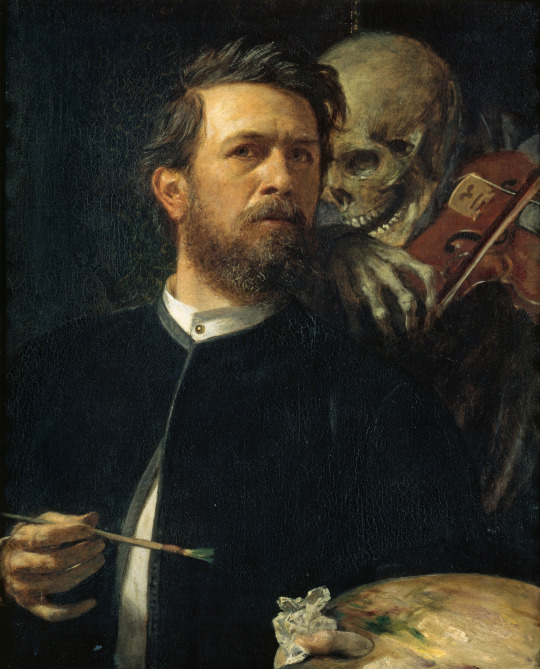
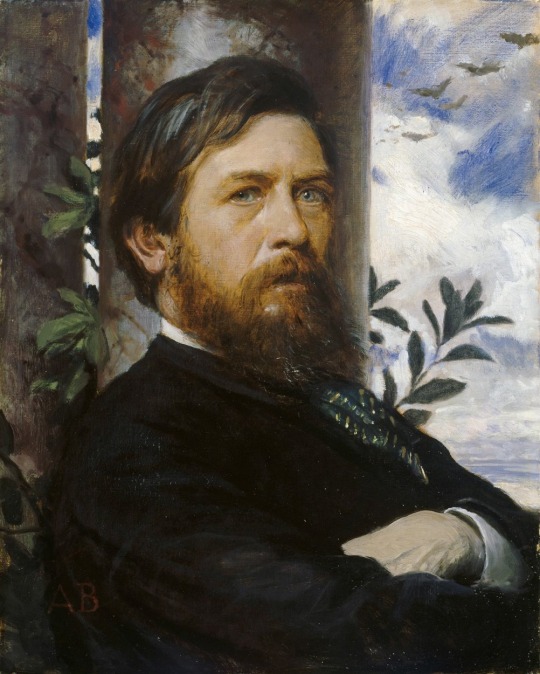
Self-Portrait with Death as a Fiddler (1872) & Self-Portrait (1873) by Arnold Böcklin
Strangely we can see the life around King Arthur radiate into the present time, continued even into our time, placed into the immediate present by the sudden power of destiny. Thus I beheld in seership a member of the Round Table of King Arthur, who lived the life of the Round Table in a very deep and intense way, though he stood a little aside from the others who were given more to the adventures of their knighthood. This was a knight who lived a rather contemplative life, though it was not like the Knighthood of the Grail, for this did not exist in Arthur's circle. What the knights did in the fulfilment of their tasks, which in accordance with that age were for the most part warlike campaigns, was called by the name ‘Adventure’ (Aventure). But there was one who stood out from among the others as I saw him, revealing a life truly wonderful in its inspiration. For we must imagine the knights going out on to the spur of land, seeing the wonderful play of clouds above, the waves beneath, the surging interplay of the one and the other, which gives a mighty and majestic impression to this very day. In all this they saw the Spiritual and were inspired with it, and this gave them their strength. But there was one among them who penetrated most deeply into this surging and foaming of the waves, with the spiritual beings wildly rising in the foam with their figures grotesque to earthly sight. He had a wonderful perception of the way in which the marvellously pure sun-influence played into the rest of nature, living and weaving in the spiritual life and movement of the surface of the ocean. He saw what lived in the light nature of the sun, borne up as it were by the watery atmosphere as we can see to this day, the sunlight approaching the trees and the spaces between the trees quite differently than in other regions, glittering back from between the trees, and playing often as in rainbow colours. Such a knight there was among them, one who had a peculiarly penetrating vision of these things. I was much concerned to follow his life into later time to see the individuality again. For just in this case something would needs enter into a later incarnation of a Christian life that was almost primitive and pagan, that was Christian only to the extent that I have just described. And this in fact was what appeared, for that Knight of the Round Table of King Arthur was born again as Arnold Böcklin. This riddle which had followed me for an immensely long time, can only be solved in connection with the Round Table of King Arthur.
—Rudolf Steiner, Karmic Relationships vol. 4: Lecture III
1 note
·
View note
Text
potential harbingers who are related or connected to kaeya from least to most likely:
pierro: in richard wagner's the ring cycle, alberich (aka kaeya's "Father") had a brother named mime. mime and alberich hated each other. considering hyv's love of terrible puns: mime = clown = pierro. occultist crowley compares pierro's tarot card the fool to the arthurian character percival/parzifal, the greatest fool of them all. parzival is the fisher king anfortas's nephew.
capitano: coincidentally, anfortas is the knight marshal of the schwannenritter and the alberich who became regent of khaenri'ah. anfortas's fate remains unknown. capitano's potential constellation the three nails is similar to the tarot card the three staves which is associated with the fisher king (anfortas) by poet t.s. eliot. more detailed post here
columbina: columbina is most likely a seelie. kaeya has a TON of references to seelie to the point where it cannot go on ignored. not going to list them all again but here's a brief summary. also a book that just got released adds more weight to this theory.
arlecchino: in the letters from the secret compartment, kaeya called someone "Father" in brackets. arlecchino is also called "Father". need i say more 😏
#last one joke but i think the seelie connections are too glaring for it not to be true at this point so columbina takes the lead here#capitano is confusing because he might be two people fused together and pierro might just be some random clown after all#.txt#ANYWAY KAEYA IMPACT REAL#lore bytes
13 notes
·
View notes
Text
I love how Bran is clearly the Fisher King of the series, whose direwolf is named Summer. How this indicates that he would not be someone playing merely from the sidelines but would be someone who perhaps would decisively bring an end to the Long Night.
I have very little knowledge of the Fisher King legend. I think I only heard it in relation to either Browning or T.S. Eliot. The legend goes that he is the king of a land, but his wound has rendered him infertile and because he is the representation of his kingdom, so has the land become barren. I also just now learnt from Wikipedia that the FK was the last of the long line of kings tasked with guarding the Holy Grail. Now that itself is of consequence as the quest for the Holy Grail not only forms the basis of the impressive Arthurian legends but also for its religious connotations ( if I am not wrong).
So in the series we have Bran. We have Bran who is the namesake of a long line of Brans, all the way upto Bran the builder, who apparently raised the Wall. I love how there is a legend of the Wall being built with magic ( there are spells woven into it and blood from all who died while building it...Idk if I am making this up but I have this very faint memory of reading this). And Bran the Builder laid the foundation of House Stark and built it its ancient seat. So all these legends of Bran the Builder now come down to our Bran through Old Nan's stories and perhaps through history lessons ( though less fantastical). And our Bran, he deems himself the frailest of all, owing to his disability. I don't remember if it was himself who took on the moniker of Bran the broken or if it was a jibe.
This Bran once boasted of knowing every crook of Winterfell better than Robb. Who climbed and went exploring around this ancient seat as none of the Stark kids ever had. And when the sack happened, Bran compares himself to the stones of Winterfell. Broken but not yet dead. And this parallels so beautifully with the Fisher king legend. The king is injured and his land reflects the pain. But a knight shall come, and finally through a holy quest would once again restore the king to his glory.
And I love how George subverts the myth here. The knights did come- but Meera and Jojen won't be undertaking the quest for Bran, rather they would guide him and get him where he needs to be. The Fisher king has to fight this battle himself and earn the glory back.
A big part of Bran's storyline is his struggle with disability. Young highborn boys have a particular life set out for them. Those who are younger sons would squire under prominent knights and then would become one themselves. They would participate in jousts, be a part of a battalion and then maybe earn a name and a keep for their services and rule over the land. Bran dreamt of this life. He dreamt of adventures, of being bold and strong. But now he has to listen to jibes and sit through the pitying looks of the lords who think living a life where one cannot joust or hunt or ride into battle is a freakish one. I think a part of Bran's quest is to realize his strength. Martin uses magic to communicate this, but indeed so many people out there walks through this world differently than an able bodied person. So a part of this "quest" is to realize his worth as a powerful greenseer and warg ( and not because it gives him the freedom from his broken body). He has to realize even "broken", he has the power to move the course of lives. That his strength lies in his convictions- he won't forget the kindness showed to him by the man who shared his food while Bran's party was on the run.
Bran is the Fisher King, descended from a long line of kings whose duty was to protect the Wall and keep away the darkness. But now the darkness is here and perhaps the Wall shall fall. Our Fisher King has to regain his strength, realize his worth and face the cold like a knight. Only then can summer come, and the land ( Winterfell and the North) shall once again bear fruits.
#this is too long and really just a rehashing of what we already know#bran stark#asoiaf#I am trying to get back into writing metas
142 notes
·
View notes
Text
Do not abbreviate tsukasa to T.S. omg can u imagine... knights climax taylor swift joins ensemble square
14 notes
·
View notes
Text
Books Read in 2023
Frankenstein by Mary Shelley (Dec. 27, 2022- Jan. 16, 2023)
The Strange Case of Dr. Jekyll and Mr. Hyde and Other Tales of Terror by Robert Louis Stevenson (Jan. 16- Jan. 28)
Dracula by Bram Stoker (Jan. 28- Feb. 22)
Sir Gawain and the Green Knight translated by J.R.R. Tolkien (Feb. 22- March 5)
Peter Pan by J.M. Barrie (March 5- March 15)
The Last Unicorn by Peter S. Beagle (March 15- March 27)
Wuthering Heights by Emily Brontë (March 27- April 24)
Tales of Norse Mythology by Helen A. Guerber (April 24- May 20)
The Medici by Paul Strathern (May 20- June 12)
Ghost Stories of Tennessee by A.S. Mott (June 12- June 21)
The Borgias by Paul Strathern (June 21- July 22)
Candide, or Optimism by Voltaire (July 22- August 1)
Carrie by Stephen King (August 1- August 13)
The Age of the Vikings by Anders Winroth (August 13- September 5)
Mozart: A Life by Maynard Solomon (September 5- November 4)
Vampyroteuthis Infernalis: A Treatise by Vilém Flusser (November 4- November 7)
Red, White, & Royal Blue by Casey McQuiston (November 7- November 22)
King Arthur & the Knights of the Round Table by Martin J. Dougherty (November 22- December 3)
Valkyrie: The Women of the Viking World by Jóhanna Katrín Friðriksdóttir (December 3- December 27)
Old Possum's Book of Practical Cats by T.S. Eliot (December 27- December 27)
#madeline talks#books read in 2023#continuous editing#frankenstein was really good actually#but victor was kind of a dick. sorry not sorry
34 notes
·
View notes
Text
My 2023 Reads

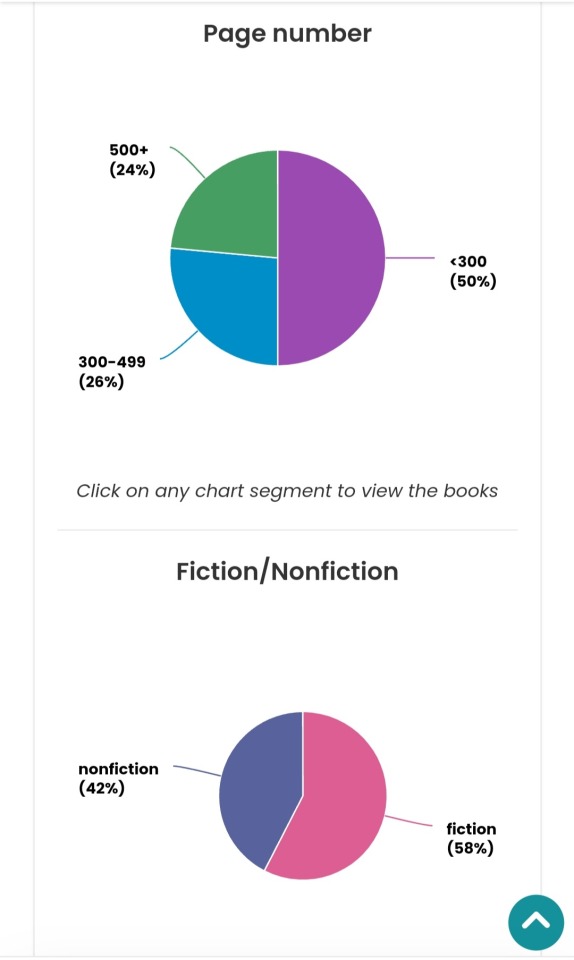

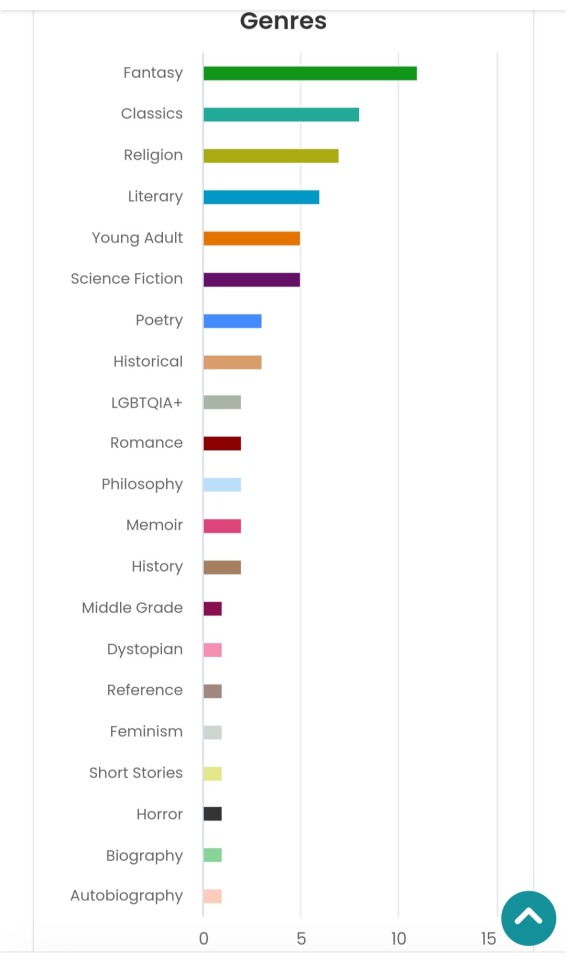
See below for the full list of the books I read and a 1-2 sentence review of each.
Fiction, non-fiction, poetry
Italicized- reread
Cloud Cuckoo Land (Anthony Doerr) - It's like a combination of All the Light We Cannot See, Cloud Atlas and The Book Thief, except not quite as good as any of those. Good, just not as good.
The Stolen Heir (Holly Black) - Highly recommend if YA fantasy romance is your thing
On the Incarnation (Athanasius of Alexander) - one of the foundational works of early Christian theology
Klara and the Sun (Kazuo Ishiguro) - Beautiful, and lovely, and thoughtful and bittersweet
Sir Gawain and the Green Knight, Pearl and Sir Orfeo (Tolkien translation) - technically this is poetry but its also narrative so I grouped it with fiction. Green Knight is very fun. Pearl is quite boring.
The Case Against the Sexual Revolution (Louise Perry) - I highly recommend this, just be cautious because it has some very frank discussions of some very hard topics so there's a whole bunch of language and trigger warnings attached to this recommendation
Justification Reconsidered: Rethinking a Pauline Theme (Stephen Westerholm) - I'm going to be honest-- I don't remember what I thought of this book. It was for school and I also did a bunch of research on the topic and I don't remember what part of that research this constituted.
A Quest for Godliness: The Puritan Vision of the Christian Life (J.I. Packer) - I read a few chapters of this for a research project last year and liked it enough to buy myself a copy and read the whole thing for fun
The Warden and the Wolf King (Andrew Peterson) - Book 3 of this series (this is 4) remains my favorite but this one is really good and is a beautiful culmination of the themes
The Elements of Eloquence (Mark Forsyth) - About as good as a book that is just explaining various rhetorical figures can be.
The Theology of the Book of Revelation (Richard Bauckham) -THIS book right here I want to read again. This book made me fall in love with Revelation.
King of Scars (Leigh Bardugo) -It's the reason why I'm very upset over the cancellation of the Shadow and Bone tv series (because I won't get to see more of my boy Nikolai) but it's fine
The Secular Creed: Engaging Five Contemporary Claims (Rebecca McLaughlin) - A very useful book, very accessible
Rule of Wolves (Leigh Bardugo) - But seriously I love Nikolai and I mostly really enjoyed this duology.
The Waste Land and Other Early Poems (T.S. Eliot) - So many words saying so many things and maybe I'll know what they mean if I read this another 30 or 40 times.
Notes From Underground (Fyodor Dostoevsky) - Very different from other Dostoevsky but fascinating in its own way
The Scarlet Pimpernel (Emmuska Orczy) - It's a romp
Calvinism: A Southern Baptist Dialogue - genuinely very very helpful to me and just randomly was emailed to me as a pdf by some site that I ended up on the email list for
The Great Hunt (Robert Jordan) - I do not have faith in this series being good over time but at book 2 they're fun
Pride and Prejudice (Jane Austen) -It really is that good.
Original Sin: A Cultural History (Alan Jacobs) - a really interesting exploration of the idea
Out of the Silent Planet (C.S. Lewis) - The Space Trilogy is great because it just has such a different feel from most of the other sci fi I've read
Gay Girl, Good God: The Story of Who I Was and Who God Has Always Been (Jackie Hill Perry) - Perry has such a lovely poetic way of telling her story
Booked: Literature in the Soul of Me (Karen Swallow Prior) - This book is really lovely and peaceful and reflective
A Wizard of Earthsea (Ursula K. Le Guin) -honestly was not very impressed by this. It was fine.
Anna Karenina (Leo Tolstoy) - If you're really into the Russian classics, I would recommend this, but there's like 6 others I would recommend first.
Firefly: Big Damn Hero (James Lovegrove, Nancy Holder) -If you want the book equivalent of a solid but not stand-out filler episode of Firefly
The Hidden Girl and Other Stories (Ken Liu) -I ranked all of the short stories in this on my blog if you search for it. Some are great. Some are not.
All the Light We Cannot See (Anthony Doerr) - It's really really good. A book you just want to sit with.
The Chalice of the Gods (Rick Riordan) - Kinda the same vibe as the Firefly one. It's good to see Percy again, it's a fun time, it's not taking any big swings or doing anything particularly new. But I did really enjoy the thematic linking of which gods were chosen to be a part of the story.
Dracula (Bram Stoker) - It's Tumblr, I don't need to review this here.
Biblical Critical Theory: How The Bible's Unfolding Story Makes Sense of Modern Life and Culture (Christopher Watkin) - This book is really big but it has so much good stuff in it. Well worth the read.
An Experiment in Criticism (C.S. Lewis) - There was quite I while through this one where I was not really jiving with it, but then at the end he pulls it together and I really like where he ends up, as evidenced by quoting half of it on posts here.
Poems (C.S. Lewis) - I'm not good enough at reading poetry to review it. There's a few in here that I quite liked though.
For teaching-
1. The Great Gatsby (F. Scott Fitzgerald)- it's still great. After reading it who knows how many times, it's just so good.
2. The Crucible (Arthur Miller)- The character work in here is fantastic, and I really do like it a lot, but if Miller understood grace a bit better? the ending could be phenomenal.
3. Long Way Gone (Ishmael Beah)- It's not my favorite but it is really powerful and worth reading and the kids were really invested in it
4 notes
·
View notes
Text
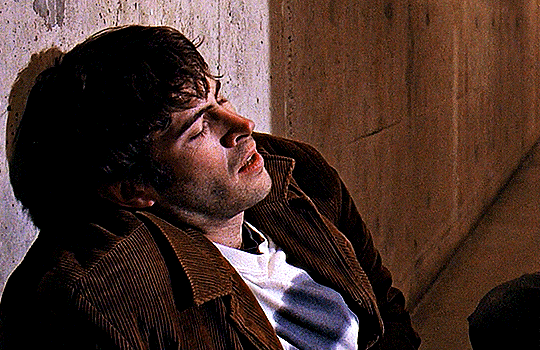

18+ MINORS AMD THOSE WITHOUT AGE IN BIO DNI
YOU WILL BE BLOCKED AND REPORTED
warnings: talk of a fight, language
AN: no one asked for this. But Whatever. I think he’s cute and it’s fun to write for Brodie.
Running through the mall with T.S., Jay and Silent Bob towards the loud cheering wasn’t how I wanted to spend my day off with Brodie. But apparently it was.
“What did he do this time?” T.S. wheezed as we reached the railing looking down on the center of the mall. Brodie stood in the middle while Shannon hamilton circled him. “Oh shit.” Sharing a look with Jay, I took off for the escalator. Shoving people away from the staircase, I climbed on the railing and slid down. “(Y/N)! What are you doing?”
“Getting there faster!” I called back. I landed on my feet and turned to give him a quick wave as he fought his way down. Fighting through the crowd was a different story entirely. There was a loud boo and I started fighting harder. The crowd started to thin out and I caught a glimpse of hamilton throwing Brodie through the doors to the back hallways of the mall. Breathing deeply, I sprinted one last time to grab the door before they closed. Slipping in, I saw Hamilton walking down the hall and Brodie slumped down on the wall. “What did you say to him Brod?” I knelt down next to him and put my hand on his head gently.
“I didn’t say anything to him.” Brodie groaned. “He walked into me. I said excuse me. He swung. Next thing I know there’s a crowd and they’re calling for a fight.”
“That wasn’t a fight babe. That was getting your ass kicked.” I brushed some hair out of his eyes before standing up. Brodie chuckled as he looked up at me.
“And here I thought I was your knight in shining polyester.” He teased, a bright smile taking over his features.
“You are. Just not against Shannon hamilton.” I offered him my hand. He took it and I pulled him up. Wrapping an arm around me, Brodie leaned on me as I helped him walk out of the maze that was the belly of the mall. Brodies head leaned against mine and I turned to kiss his cheek.
“But I’ll always fight him for your honor.” It was said under his breath but I still heard him.
“Wait what?” I stopped just as we caught sight of T.S. Jay and Silent Bob had run off.
“Nothing.” I forced Brodie to sit down on the bench before turning to face him.
“You said something. What was it?” T.S. had joined us and sat down on the other side of Brodie.
“What’s going on?” Brodie shook his head and wrapped an arm around his stomach.
“Brodie said something about defending my honor against Shannon Hamilton. But he won’t elaborate.” Brodie leaned his head against mine again and I carefully threaded my fingers through his hair.
“What did that dickwad say about (Y/N)?” T.S. looked between the two of us. Brodie stayed silent and closed his eyes, relaxing against me further. “It had to be bad if you won’t even repeat it.” Brodie nodded and tilted his head so he could press his face against my neck.
“Let’s just say he called into question the authenticity of our relationship.” Brodie finally spoke up. “Said some not so nice words in reference to you.” He lifted his head and looked up at me with big brown eyes. “I shoved him. He shoved back. Fight broke out.” There was a small shrug before his face was back in my neck. T.S. patted him on the back before standing up.
“Good for you Brodie.” He squeezed my shoulder. “You two need to talk.” Brodie waited until he had walked away before kissing me gently.
“You stood up for me?” He nodded. “That’s actually really sweet of you.” I smiled at him.
“It’s not something I do everyday.” Brodie tried to joke. I chuckled before shaking my head.
“Why didn’t you tell me that in the first place Brodie?” He sighed.
“Because I didn’t want you to know. It’s my job to protect you. And I did. I may have lost but I proved I’d fight for you. And he won’t do it again because of that.” Brodie kissed me again. “I love you.” I smiled as I kissed him back.
“I love you too.”
#brodie bruce#brodie bruce x reader#Brodie Bruce imagine#brodie Bruce fanfic#brodie bruce fanfiction#jason lee#jason lee x reader#jason lee fanfic#jason lee fan fiction#jason lee imagine#mallrats#mallrats imagine#mallrats fanfic#mallrats fanfiction#view askewniverse
49 notes
·
View notes
Text
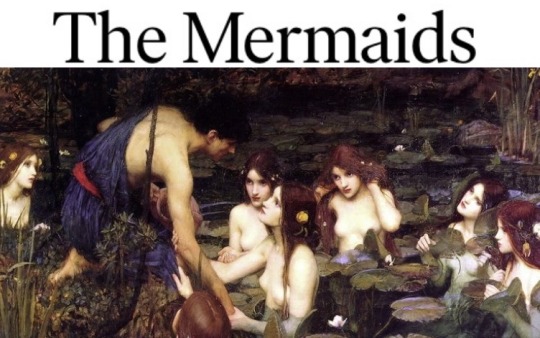

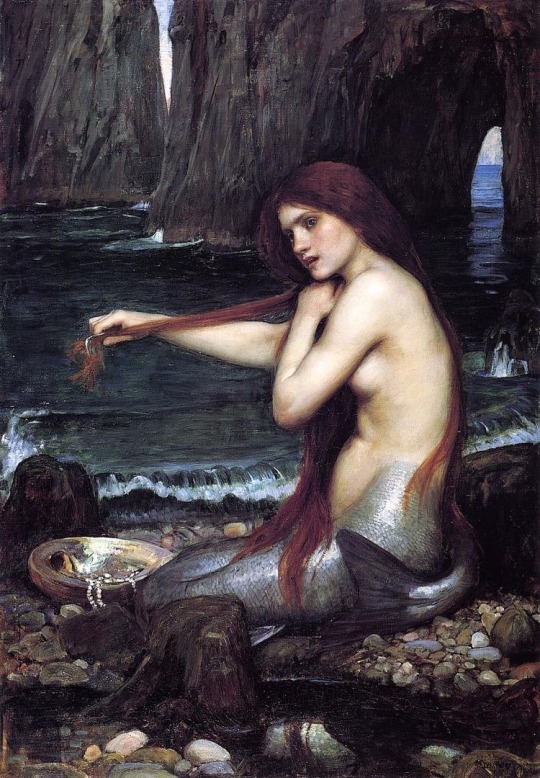
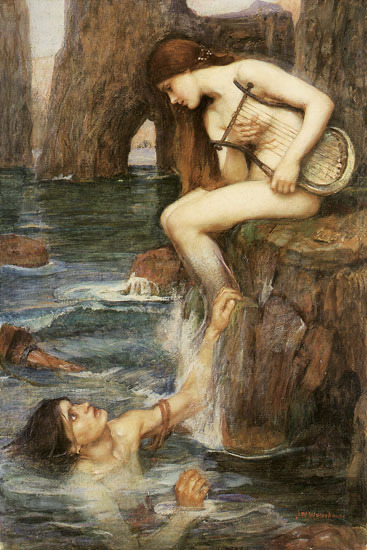


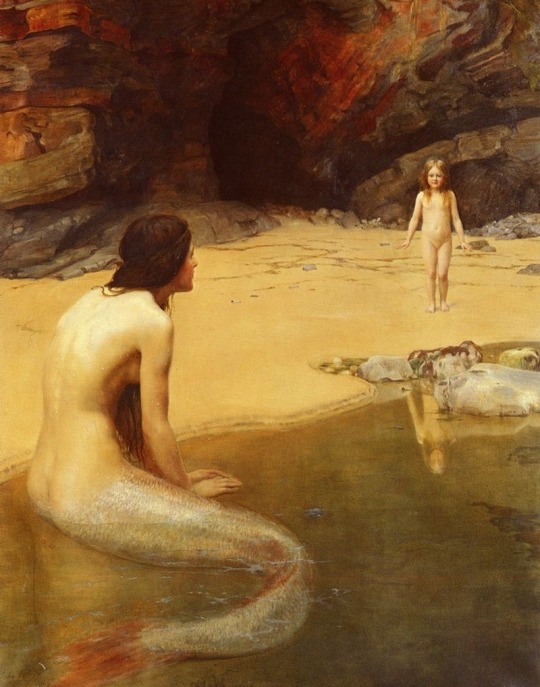


“The most haunting time at which to see them is at the turn of the moon, when they utter strange wailing cries; but the lagoon is dangerous for mortals then…”
“the mermaids” - marianne boruch // “hylas and the nymphs” - john william waterhouse // “the love song of j. alfred prufrock” - t.s. eliot // “a mermaid” - john william waterhouse // “the siren” john william waterhouse // moby-dick - herman melville // “the knight and the mermaid” - isobel lilian gloag // “the land baby” - john collier // “lamia” - john keats // of “hylas and the water nymphs” - henrietta rae // peter pan // j.m. barrie
#pre raphaelite#pre-raphaelite art#art#words#web weaving#mermaids#quotes#poetry#prose#paralells#comparatives#mine.#lou.txt
50 notes
·
View notes
Note
Hellow! This question is for the game
I choose option c.
Initials T.s.
Hers. P.s
This is a really old friend thats impacted me a lot. Theres always an unspoken ego battle between us whenever we're together. Shes popular, extroverted and confident looking. Im on the quiter side and im on my journey to be more confident. We're not as close as we used to be, i barely see her. Shes still in the back of my mind all the time, impacting the way i act and my confidence. I feel like theres something i need to learn from her and this connection to let go.
Thank you very much♡♡♡
get the Queen/King energy in you, focus on your finances/career/studies (King and Queen of Pentacles), get into a lighthearted mood, Page of Cups. there could be a conflict in you that you're trying to resolve. resolve it (2 of Swords). maybe you're finding it really difficult to lighten up. Three of Cups get into a mood where you're celebrating. celebrate small to big things. Knight of Wands. allow yourself to slowly step into a more straightforward, direct energy and talk more. just a suggestion for Knight of Wands.. add a sentence or two more each day to each person you want to talk to. the next day double it. keep doing it until it's natural to you.
please leave feedback. and I'm sorry the reading took so long
0 notes
Text
wwiii??? why and wi knot, october 26th 2023 - day 15,999
Today we have the naming of parts Henry Reed. Tomorrow we have the naming of cats T.S. Eliot
for T.S.
with love, thanks and gratitude
.
.
.
woke, wake and work - the period period period Pulitzer
World War III - Wake up Planet Earth (or press the Woke Sleep Button!) - Quit WORK instead Quommunism?
Knock three times before entering 20th Century???
Rule of thumb: Always keep a spare and always have a third party First Amendment
Dot the i's and cross the t's
.
.
.
Wakeling: shouldn't this name be on on the C.I.A. Blacklist Walter White?
Wake up humanity?! Global hypnosis warning…question climate change.
I came back with supporting evidence Langley, January 6th, wakefulness and sleep, doctors, death row, rotten row, psychiatry and Mediterranean Medication…
.
.
.
E.L. Doctorow Dr. Black Knight? "Former President Barack Obama called him "one of America's greatest novelists""
Mind games, mind control techniques and psychological torture Mr./Mrs./Ms. Psychologist-in-Chief, sir or madam…
Let the games begin?
.
.
.
Wakeling
Wakering
Walklin
Wakeland
Wakelin
Wakefield
Wake up and calm down
.
.
.
Great and Little Wakering
Wakeling St, Philadelphia, PA, USA
Wakeling Rd, Denton, Manchester, UK
Wake Island, Marshall Islands, Pacific Storm cigarettes, Zimbabwe
Wakefield place names globally, Boston Tea Party
.
.
.
Edgar Lawrence Doctorow (January 6, 1931 – July 21, 2015) aka E. L. Doctorow
References (via Wikipedia):
Wakefield (January 14th 2008, The New Yorker)
Wakefield (2016 movie)
Homer & Langley (2009)
The Book of Daniel (1971)
Daniel (1983 movie)
Bryan Craston (stars in Wakefield, Breaking Bad, Better Call Saul et al.)
.
.
.
Doughnuts and Guitars Richard
Jonathan Livingston Seagull and Dr. David Livingstone
"Dr. Livingstone I presume?" Gulliver's Travels by Jonathan Swift
Israel and the Star of David
Biblical story of Jonathan and King David (Old Testament?) and the Book of Jonah?
Taylor Swift?
The Star of David and the Flower of Life, Ancient Egypt?
The road goes ever on and on Frodo and Uncle Sam Samwise
.
.
.
Biblical story of Jonathan and King Doctor David Livingstone I presume…?
.
.
.
The Gaza Strip and The Las Vegas Strip? Nude modelling?
.
.
.
The Great Pyramid of Gaza Strip… Any pyramids in Las Vegas?
.
.
.
Giza and Gaza old water geezer, sir
.
.
.
The Las Vegas Strip raises the stakes U2!
Achtung Baby (1991 album)
.
.
.
A top secret map of the Middle East
.
.
.
A #TOPSECRET map of the #MiddleEast @CIA Mr. President Biden sir.
… Secret Agent Basra Reed Warbler…
#SaudiArabia - mother
#Jordan - self
#Lebanon - sister
#Qatar - father
#Israel - brother
#CIA #FactCheck #deadhand #perimeter #nucleardisarmament
Via #NorthKorea Trump
Tweet or twit?
Family therapy Virginia Satir.
.
.
.
Any other business Washington, Langley et al.?
Pulitzer Prize winning journalism Mr. President Biden? War makes no dollars or sense folks.
Play soccer instead Ted Lasso!
Bruce David Grobbelaar and Paul John Gascoigne aka Gazza?
Where to from here and et tu, Brute America?
.
.
.
Duty period
Commitment period
MISSION PERIOD
Question mark
More questions than answers Central Intelligence Agency (C.I.A.) 🇺🇸🇺🇸🇺🇸
0 notes
Text
Tying Contemporary Thrillers to the Past
JJ Tafuto
The period of interwar Europe (between World War 1 and World War 2) was a time that was very chaotic and filled with turmoil for the continent, rich with political and economic uncertainty, including events like the Treaty of Versailles, the Great Depression, and the emergence of totalitarian regimes in Europe such as Nazi Germany and Fascist Italy. Europe was fractured and in debt after World War 1. “The postwar world, as seen by writers and other artists, had the fragmentary, disillusioned quality of T.S. Eliot’s The Waste Land, published in 1922. It was self-conscious and introspective, as in Luigi Pirandello’s 1921 play Six Characters in Search of an Author. It was more open to the unconscious, as in Dada and Surrealism. It was more aware of man’s dark fears and instincts.” (Britannica) Films are always inspired by what’s going on at the time, and this period in history is no different. The time was characterized by significant challenges, including economic turmoil, political instability, the aftermath of a devastating war, and the rise of authoritarian regimes and the films reflected that. While the current situation of Europe is not entirely similar, these themes of struggle, conflict, and changes in society are timeless narrative devices and can be applied anywhere and still just as popular today. Though the actual settings may differ, the commentary and messages the films portray are still prevalent.
Fantomas directed by Louis Feulliade is one of the most impactful crime/spy thrillers of its time, and has gone on to influence the genre today. “The crime and detective genres, in both their literary and cinematic incarnations, relentlessly pursued questions of certainty and the link between knowledge and identity.” (Callahan) These early thrillers such as Fantomas introduced concepts and themes that haven’t withered away. They introduced narrative techniques, characters, and tropes that contemporary filmmaking still draws back to. Tropes like secret societies, masked villains, and elaborate heists are all staples of the genre, and were started with films like Fantomas. Fantomas himself is a criminal mastermind who employs various disguises and identities to carry out his crimes. Movie villains have always enamored audiences, and in some films are even the biggest takeaway. This concept of a brilliant and elusive antagonist who can change appearances and evade capture is a recurring theme in contemporary crime and spy films. Characters like the Joker in The Dark Knight share similarities with Fantomas as a villain with elaborate schemes that is always 5 steps ahead to evade capture and takes on various disguises.
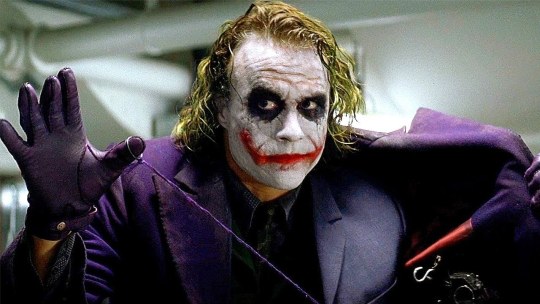

Callahan, Vicki. Zones of Anxiety : Movement, Musidora, and the Crime Serials of Louis Feuillade, Wayne State University Press, 2005. ProQuest Ebook Central, http://ebookcentral.proquest.com/lib/quinnipiac/detail.action?docID=3416542.
Barzun, Jacques , Peters, Edward , Champion, Timothy C. , Parker, N. Geoffrey , Stearns, Peter N. , Salmon, John Hearsey McMillan , Mayne, Richard J. , Sørensen, Marie-Louise Stig , Herlihy, David , Herrin, Judith Eleanor , Aubin, Hermann , Weinstein, Donald , Frassetto, Michael and Treasure, Geoffrey Russell Richards. "history of Europe". Encyclopedia Britannica,
0 notes
Text
Let there be light
The whole is only visible through both light and dark, through yin-yang
“The darkness declares the glory of light”
– T.S.. Eliot
Let there be lightsaid the Christian godthen creationwas visibleThe wholerevealedwhen bothlight and darkexist
The earth spinsbeneath our feeteastward boundas it turnsfrom spaceto the sundarknessto the lightof day
Certaintyis rareBut always foundthroughthe yinof nightfollowingthe yangof day
References
Original artwork by Molly Knight

View On WordPress
0 notes
Text
SOLD 🎭 Cats @ London Palladium 2015 (#31)
Title: Cats
Venue: London Palladium
Year: 2015
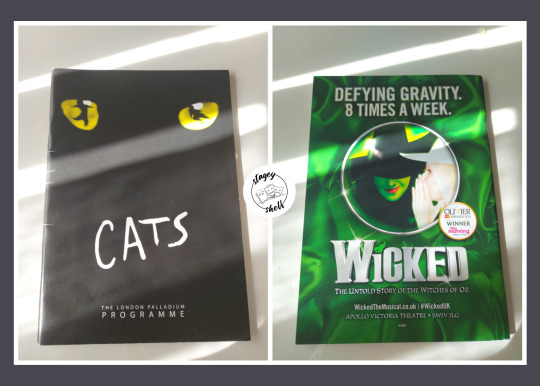
Condition: Creasing to edges
Author: Music by Andrew Lloyd Webber. Based on 'Old Possum's Book of Practical Cats' by T.S. Eliot
Director: Trevor Nunn
Choreographer: Choreographer and Assoicate Director: Gillian Lynne. Assoicate Choreographer and Director: Chrissie Cartwright
Cast: Jack Butterworth, Jon-Scott Clark, Emma Lee Clark, Paul F Monaghan, Luke Cinque-White, Danielle Cato, James Titchener, Anna Woodside, Beverley Knight, Madalena Alberto, Clare Rickard, Tarryn Gee, Jane Quinn, Javier Cid, Harry Francis, Matt Krzan, Adam Linstead, Jordan Shaw, Mark John RIchardson, Georgie Leatherland, Marcquelle Ward, Evan James, Gabrielle Cocca, Hannah Kenna Thomas, Megan Armstrong, Lindsay Atherton, Lucy Brushett, Barry Haywood, Alex Pinder, Oliver Ramsdale
FIND ON EBAY HERE
0 notes
Note
OMG FELLOW DIVINERS FAN!
Who is your favorite character?!?! What's your favorite ship? Who do you think has the coolest power? How much have you cried?
I'm so glad I found another diviners fan! I still haven't read the last book cuz it wasn't translated to the language I read the books in but it's still one of my favorite book series ever!
Ahhhhhhhh! Yes, I'm pretty sure that's how I found you on the Diviners tag lol! My username is a ref to the twenty dollars Sam steals from Evie in the first book!
Real talk I seriously love all the main characters (except Jericho, but this isn't about him), but my top favs are Evie and Sam! I love them both so much. "Too much" messy heroines are my absolute favorites (hence my love for Devi from Never Have I Ever also) and i find Evie relatable in some ways. I absolutely love Sam, he's brash and snarky, but sweet and cares so much and is also super funny and yeah, Sam Lloyd my beloved <3 But honestly the entire main squad (again, besides Jericho) are awesome and deserve all good things
Also side note for a favorite minor character, I love T.S. Woodhouse-- especially after the end of the series. I like how some characters also are not necessarily my favorite, but I think are very well done and complex like Blind Bill
Lol if not obvious, my favorite ship is Sam and Evie. Everything about them-- how they first meet, Sam wanted her to see him, their constant snark-to-snark combat (another favorite trope of mine) is just fun, the fake dating, ofc, and the way they grow close to each other and are just so reliably there for each other emotionally. I'm not gonna say anything more because I don't want to spoil you for King of Crows, but yeah!
Coolest power is a tough one, but maybe Memphis's? I feel like healing is very useful to have. I think object-reading is very cool too though, so maybe that one.
God, I don't even know how much I've cried. Lmao too much, there's your answer.
Agreed about it being a favorite series ever! I reread them like once a year and tell everyone and their mother to read them because they are so criminally underrated it's insane. They should have a fanbase as big as Six of Crows or the Ravenboys and the fact they don't? Deeply upsetting and positutely tragic.
Also, can I just say the writing as a whole? It's so immersive to the time period and setting, which I love so very much.
Also, unrelated to the Diviners lol, love your icon-- get Hunter some therapy
#would love to talk more about the diviners!#whenever king of crows is translated to your language too definitely hit me up and we can talk about it!#the diviners#evie o'neill#sam lloyd#ask#mina-thb-with-no-caps#memphis campbell#theta knight#henry dubois#ling chan#jericho jones#mabel rose#libba bray#never have i ever#devi vishwakumar#toh#hunter#bill johnson#t.s. woodhouse#isaiah campbell
27 notes
·
View notes
Text

T.S. Branch, Lady Punisher
#t.s. branch#lady punisher#lynn michaels#punisher#the punisher#marvel#marvel comics#marvel knights#viaov
13 notes
·
View notes